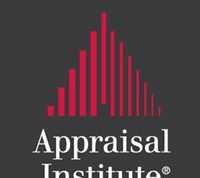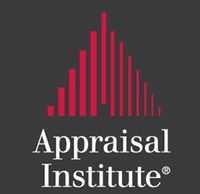
Investing in Florida’s lush landscape and booming tourist sites can seem like a golden opportunity for both seasoned and aspiring investors. In this sunny state, the investment property market ranges from beachfront villas to urban condos, each offering its own unique appeal. But how do you begin to navigate this lucrative yet complex terrain? This blog outlines some of the key steps, considerations, and strategies that can help you make informed decisions and potentially yield high returns on your investments in the Sunshine State. Whether you’re contemplating your first investment property or looking to expand your portfolio, understanding the ins and outs of Florida’s real estate market is crucial.
People have been drawn to invest in property in Florida for decades, largely due to its appealing climate, robust tourist industry, and steady population growth. The allure of year-round sunshine and the promise of a flourishing rental market – thanks to tourists flocking to attractions like Walt Disney World, Miami Beach, and the Everglades – make it a hotspot for real estate investments. Equally, as the state continues to experience population growth, demand for both residential and vacation rental properties has surged. This trend not only supports property value appreciation over time but also increases the potential for rental income, making Florida an attractive market for both domestic and international investors seeking lucrative opportunities.
So if you’re interested in property in Florida, whether condos in Miami or villas in Orlando are more your thing, what do you need to know? Here’s an overview of how Florida investment properties work.
Understanding the Market Dynamics
Before investing, it’s crucial to grasp the diverse factors influencing Florida’s property market. This includes demographic trends, economic indicators, and the supply and demand for properties in different regions. An understanding of these dynamics can guide your investment decisions toward more profitable outcomes.
The Floridian real estate market is currently experiencing notable shifts, influenced by a combination of demographic trends, economic conditions, and changes in consumer preferences. A significant influx of residents from colder states, motivated by Florida’s warm climate and favorable tax laws, is driving up demand for residential properties. Economically, Florida continues to attract businesses, thereby boosting job opportunities and supporting a strong rental market. However, this increased demand, coupled with limited housing inventory, has led to competitive market conditions and rising property prices.
Additionally, there’s a growing interest in suburban and rural areas, as remote work becomes more prevalent, shifting the focus away from strictly urban investments. Understanding these dynamics is crucial for investors looking to capitalize on the changing landscape of Florida’s real estate market.
Key Investment Strategies
Investors should consider various strategies, such as buying and holding properties for long-term appreciation, flipping houses, or focusing on vacation rentals. Each strategy requires a different approach to property selection, financing, and management.
Choosing the right investment strategy in the Florida real estate market is pivotal and can significantly impact the success of your investment endeavors. Whether you opt for buying and holding, flipping houses, or focusing on vacation rentals, the efficacy of each approach hinges largely on your personal financial circumstances, goals, and risk tolerance.
- Buying and Holding is suitable for investors looking for long-term growth in property value and stable rental income. This strategy is appealing if you have the financial stability to manage ongoing property costs and the patience to wait for property appreciation.
- House Flipping appeals to those with an appetite for short-term investments and a knack for renovations. It requires upfront capital and a deep understanding of the market to purchase undervalued properties, enhance their value, and sell them at a profit. This strategy suits investors who can manage higher risks and seek quicker returns.
- Vacation Rentals capitalize on Florida’s booming tourist market, offering potentially high rental yields during peak seasons. This strategy is best for investors who can handle the fluctuations in tourist demand and are prepared to invest in marketing their property to stand out in the competitive vacation rental market.
Financing Your Investment
Securing financing is a critical step in the investment process. Options include traditional mortgages, real estate investment loans, and leveraging existing property equity. Understanding the pros and cons of each can impact your investment’s profitability and sustainability.
Deciding on the best financing option for your Florida investment property heavily depends on your specific financial situation, investment goals, and risk tolerance.
- If you have a strong credit score and a stable income, traditional mortgages may offer lower interest rates and longer repayment terms, making them an appealing choice for long-term investments like buying and holding properties.
- For those looking to make quick turnovers through house flipping, real estate investment loans might be more appropriate. These loans are designed for investors, offering faster approval times but often at higher interest rates, suiting short-term investments that aim for quick profit.
- Leveraging existing property equity can be a savvy move for investors who already own property outright or have substantial equity in another investment. This method can provide access to substantial funds through home equity lines of credit or cash-out refinancing, but it’s vital to consider the risks of tying up personal assets in your investment ventures.
Property Management Essentials
Effective property management can significantly influence your investment’s success. This encompasses finding and retaining tenants, maintaining the property, and navigating the legal and tax implications of property ownership in Florida.
Leveraging the expertise of professionals in property management is crucial. These experts can streamline tenant acquisition, ensure timely maintenance, and adeptly handle legal complexities, thereby maximizing your investment returns. Employing knowledgeable local property managers can particularly safeguard your investment, enabling you to focus on strategic decisions rather than daily operational challenges.
The real estate market in Florida presents a promising landscape for discerning investors. By understanding market dynamics, adopting a strategic investment approach, securing appropriate financing, and leveraging professional property management, investors can capitalize on the opportunities within this vibrant market, navigating its complexity to achieve substantial returns on their investments.













